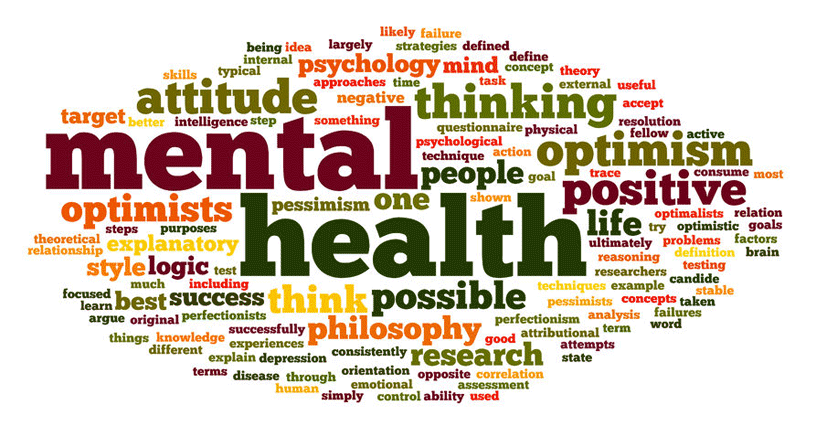Comprehensive Inpatient Mental Health Providers for Effective Treatment
Inpatient psychological health solutions stand for a crucial part of the healthcare system, supplying a extensive and structured atmosphere for individuals experiencing extreme psychological distress. These solutions use a multidisciplinary method, incorporating various evidence-based therapies to attend to the complicated demands of clients. The effectiveness of such extensive treatment expands past prompt stabilization; it likewise encompasses the transition to outpatient assistance, a vital phase commonly forgot - mental health services. Exploring the nuances of this continuum exposes considerable effects for both specific recovery and broader mental wellness end results. What factors truly affect this shift, and exactly how can we improve its efficiency?
Comprehending Inpatient Mental Health And Wellness Services
Inpatient psychological health and wellness solutions supply important support for people experiencing extreme mental distress that can not be managed properly in an outpatient setup. These solutions are made to use an intensive degree of care in an organized atmosphere, typically within a hospital or specialized facility. Clients confessed to inpatient programs normally show intense signs, such as suicidal ideation, severe depression, or psychosis, requiring round-the-clock surveillance and intervention.
The admission procedure usually entails an extensive assessment by psychological health specialists, who examine the individual's frame of mind, background, and prompt needs. When confessed, clients involve in a variety of restorative methods tailored to their certain demands, consisting of medication administration, specific therapy, and group sessions. This all natural approach intends to support the individual's problem, promote security, and foster coping abilities.
Inpatient mental health services not only address instant wellness concerns however likewise function as a bridge to ongoing care. By offering a controlled setting, these solutions assist in the development of treatment strategies that can be proceeded in outpatient setups, hence ensuring a continuum of care and boosting lasting outcomes for individuals with complex mental health and wellness needs.
Secret Parts of Effective Treatment
Efficient therapy in inpatient psychological health and wellness solutions makes up a number of vital parts that cultivate recuperation and stablizing. A comprehensive assessment is essential to identify the person's particular requirements and challenges. This assessment educates the growth of a customized treatment plan, which offers as a roadmap for intervention.
Another critical part is the multidisciplinary group method. Collaboration amongst psychoanalysts, psychologists, registered nurses, and social workers makes certain that numerous viewpoints add to the client's treatment, improving the performance of therapy. Evidence-based restorative techniques, such as cognitive-behavioral therapy (CBT) and dialectical actions therapy (DBT), are also indispensable, supplying organized techniques that resolve maladaptive idea patterns and behavioral concerns.

Lastly, a focus on aftercare planning is critical to make sure a seamless change to outpatient solutions, reducing the risk of relapse and promoting lasting wellness. These cumulative elements create an efficient treatment structure within inpatient mental wellness services.
Advantages of Comprehensive Care

Extensive treatment in inpatient mental health services uses countless benefits that considerably improve person outcomes. One of the main advantages is the holistic technique to therapy, addressing not only the mental signs however additionally the physical, social, and emotional requirements of individuals. This thorough assessment enables tailored treatments that advertise general health.
An additional advantage is the integration of multidisciplinary teams, which fosters collaboration among healthcare professionals. This collective atmosphere guarantees that clients get collaborated care, decreasing the danger of fragmented treatment and enhancing communication amongst caretakers. In addition, thorough treatment promotes connection of services, enabling for seamless transitions from inpatient to outpatient setups, which is critical for lasting healing.

Lastly, the structured setting of thorough inpatient treatment gives a safe space for clients to participate in therapeutic tasks, assisting them create dealing methods and strength. Jointly, these advantages add to much more effective therapy and boosted high quality of life for individuals experiencing mental wellness dilemmas.
Evidence-Based Healing Techniques
In the realm of mental wellness therapy, evidence-based therapeutic approaches play a crucial duty in making sure that clients receive efficient and scientifically sustained interventions. These approaches incorporate the very best available study with medical knowledge and patient worths, promoting a tailored therapy experience that deals with specific needs.
Cognitive Behavior Treatment (CBT) is one of the most extensively recognized evidence-based techniques, concentrating on identifying and altering adverse thought patterns and behaviors. This organized approach has shown effectiveness in treating problems such as ptsd, anxiety, and depression. Dialectical Habits Therapy (DBT) is especially efficient for individuals with borderline personality disorder, emphasizing the development of emotional regulation and social performance abilities.
In addition, drug monitoring is usually an indispensable part of evidence-based therapy, as psychotropic medicines can ease signs and enhance overall performance. Collective care models, which involve multidisciplinary groups, better improve the efficacy of inpatient solutions by making certain thorough examinations and constant monitoring.
Ultimately, the assimilation of evidence-based restorative methods not only advertises positive clinical end results however also encourages individuals, fostering a feeling of company and resilience in their psychological health trips.
Transitioning to Outpatient Support
The change from inpatient psychological health solutions to outpatient support notes a vital phase in a client's healing trip. This period needs careful preparation and coordination to make certain continuity of care and to mitigate the risks of regression or crisis. Reliable discharge planning must commence early in the inpatient remain, involving a multidisciplinary group that consists of psychiatrists, psycho therapists, nurses, and social employees.
Key aspects of an effective transition consist of the development of an extensive aftercare plan tailored to the person's certain needs. This plan should describe follow-up consultations, drug monitoring, and healing interventions, in addition to identify area resources and support system that can help with continuous recuperation.
Furthermore, patient and family education is important throughout this stage. Comprehending the indicators of potential setbacks and the significance of adhering to therapy can encourage individuals and their support systems.
Regular link follow-up and reassessment of the outpatient plan are crucial to deal with advancing challenges. By cultivating a collective connection in between inpatient and outpatient suppliers, the chance of sustained recovery rises, inevitably enhancing the client's lifestyle and reducing the danger navigate to these guys of readmission.

Final Thought
In summary, comprehensive inpatient mental wellness solutions supply a necessary structure for resolving severe mental distress via a multidisciplinary strategy. By integrating evidence-based treatments, fostering a structured setting, and advertising family involvement, these solutions boost therapy effectiveness. The emphasis on security and the growth of coping skills not just help in prompt recuperation but additionally assists in a smoother change to outpatient treatment. Inevitably, such extensive treatment is vital for long-term mental health and wellness.
The admission procedure usually entails a detailed analysis by psychological health and wellness specialists, that review the person's mental state, history, and immediate needs.Effective treatment in inpatient mental health solutions comprises a number of key elements that promote recuperation and stablizing.Extensive care in inpatient mental health solutions provides countless benefits that dramatically enhance patient results.The shift from inpatient mental health services to outpatient support notes a vital phase in a patient's recuperation journey.In summary, comprehensive inpatient psychological health services offer an important structure for dealing with severe psychological distress via a multidisciplinary method.